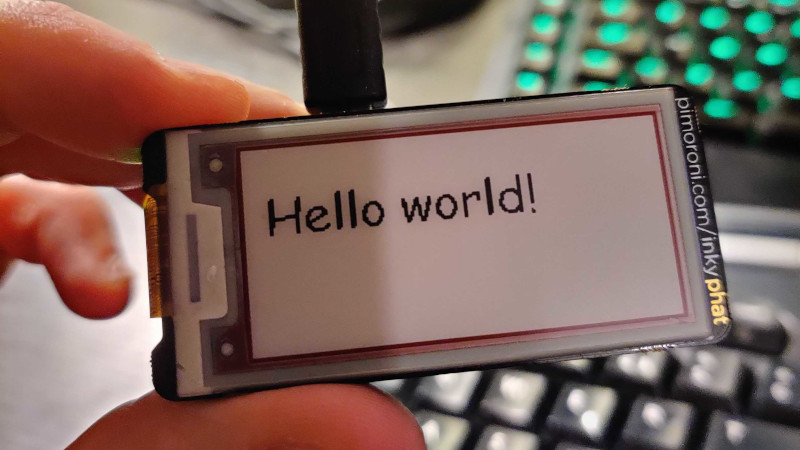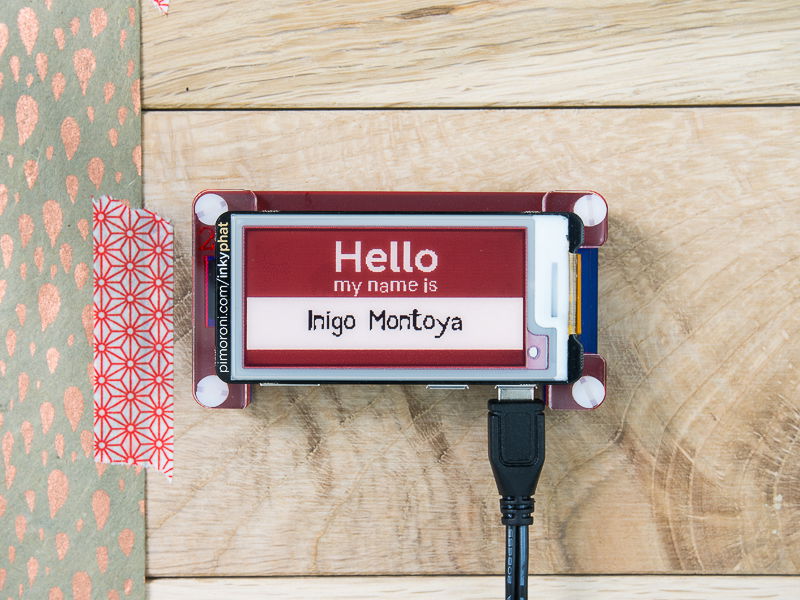This is a port of Pimoroni's python Inky library written in Elixir. This library is intended to support both Inky pHAT and wHAT, but since we only have pHATs, the wHAT support may not be fully functional.
See the API reference for details on how to use the functionality provided.
An inky host development library is underway for allowing host-side development, but until that is finished you can not see results without using a physical device.
A basic driver for scenic is in the works, check it out, to follow how it is progressing.
Inky is available on Hex. Add inky to your mix.exs deps:
{:inky, "~> 1.0.1"},Run mix deps.get to get the new dep.
A sample for Inky only, both host development and on-device is available as pappersverk/sample_inky.
A sample for using it with Scenic both for host development and on-device is available as pappersverk/sample_scenic_inky.
In typical usage this would be inside a nerves project. If Inky is installed in your application you can do the following to test it and your display (note the config in init, adjust accordingly):
# Start your Inky process ...
{:ok, pid} = Inky.start_link(:phat, :red, %{name: InkySample})
painter = fn x, y, w, h, _pixels_so_far ->
wh = w / 2
hh = h / 2
case {x >= wh, y >= hh} do
{true, true} -> :red
{false, true} -> if(rem(x, 2) == 0, do: :black, else: :white)
{true, false} -> :black
{false, false} -> :white
end
end
Inky.set_pixels(InkySample, painter, border: :white)
# Flip a few pixels
Inky.set_pixels(pid, %{{0,0}: :black, {3,49}: :red, {23, 4}: white})



